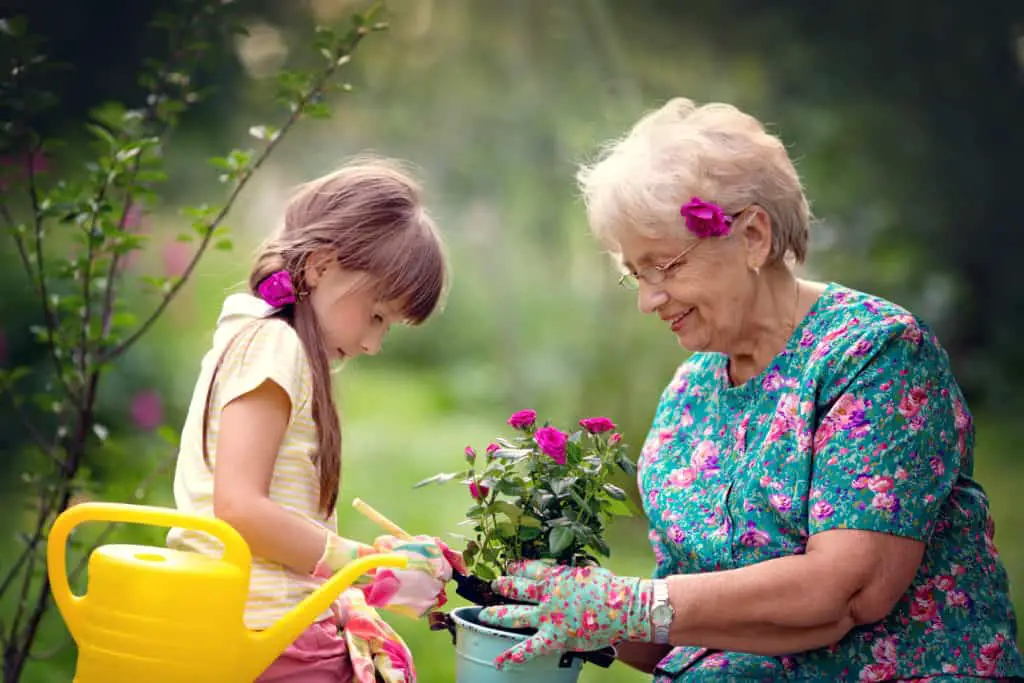
Aging is inevitable. Everyone who lives long enough grows old. The good news is that age has its advantages. The upsides of aging go beyond collecting Social Security and bouncing grandchildren on one’s knee. On the whole, older adults are a lot happier in this time of life than people generally realize. Aging can be a positive experience.
Seniors Are Happier and Mentally Healthier
Older adults don’t deal with anxiety and depression as frequently as younger and middle-aged people. They’ve learned to keep their emotions on an even keel. The many ups and downs over a lifetime have taught them that downtimes don’t last. Hindsight is definitely one of the upsides of aging.
Seniors appear to be more empathetic. Studies suggest they’re more inclined than younger adults to see another person’s point of view. They’re experienced in problem-solving. And a lifetime of developing social skills has them avoiding sticky interpersonal situations. Empathy is yet another upside of aging.
Though some will deal with dementia, memory loss, and other forms of cognitive decline as they age, most are surprisingly healthy, well-balanced, and happy.
Older Adults Have Perspective
A lifetime of experience helps a person distinguish between what’s important and what isn’t. Seniors are less likely to sweat the small stuff. They’re also less likely to beat their heads against the wall, fighting battles they can’t win. Passions and emotions don’t run as hot as they once did.
Seniors tend to be more grateful. They’re grateful that they’ve made it this far and still have more life to enjoy. They’re thankful for the people in their lives. Gratitude is definitely one of the upsides of aging.
Aging people are disinclined to worry about fashions and fads. In general, they’re not going to be criticized for choosing clothes that are comfortable rather than stylish. Cargo pants may be passe, but a man in his seventies has earned the right to wear whatever he pleases. And it is now unremarkable for Granny to wear the faddish ripped jeans.
Most older folks don’t worry about whether or not they’re keeping up with the Joneses. They’re more interested in their relationships with friends, family, and grandchildren than in what the world at large thinks of them.
Senior citizens have developed a good idea of what they can control and what they can’t.
Also, older adults have learned to get maximum enjoyment from simple pleasures: a walk on a fine day, lunch with friends, and the sight of grandchildren playing. They live in the moment rather than spend time worrying about the future.
Seniors Have More Choices about How To Spend Their Time
Most seniors reach the point where they’re working part-time or not working for a paycheck at all. That doesn’t mean they’re not engaged in life. In fact, one of the most frequent comments you hear from retired folks is, “I don’t know how I ever found all that time to go to work.”
It’s amazing what you can do when earning a living is no longer top of your priority list. You can travel, learn a new language, and take college courses merely for the sheer pleasure of learning something new. You can volunteer or get involved in local civic affairs. You can paint, mentor young folks, or write a book. The possibilities are endless.

An impressive number of older people choose to become adept at some form of technology. The stereotype may be kids showing their elders how to use electronics, but the reality is sometimes the other way around.
Discretionary Priorities
Many seniors stay busy, but they don’t stress themselves by trying to squeeze 26 hours of activity into a 24-hour day. Working adults often stay up late and get up early in order to meet their many obligations. They deprive themselves of sleep, and many are perpetually tired.
Healthy aging people have a lot on their calendars but typically don’t cram activities one on top of the other. They don’t deny themselves the rest they need so that they can get just one more task accomplished.
If they tire in the afternoon, people with jobs have to down another cup of coffee and keep going. Older adults are more often in a position to slip off and catch a short nap.
For people in their working years, only a small portion of their hours are discretionary, where they can pursue hobbies, relax, or spend time with family. A key upside of aging is that you have much more control over how you schedule your life.
The Perks of Aging
There are a number of obvious financial perks that come with aging. Examples are Social Security and Medicare. Many retired people have plans that keep sending them checks even after they’ve stopped working. A lot of older individuals own their homes outright and no longer make mortgage payments.
Many seniors are in a position to be generous, not only with their time but also with the wealth they have accumulated. They can contribute to charities and political causes and give generously to their children and grandchildren. They might be able to fund college savings accounts for their progeny. They may have acquired assets such as a vacation home that they can open up to family and friends.
And, of course, there are those senior discounts – restaurants, motels, thrift stores, movie admissions, just about anywhere advanced years will secure a discount, just for aging.
Spoiling the Grandchildren
Perhaps the biggest perk of all is grandchildren. Grandparents get to enjoy the good parts of interacting with them and avoid the more challenging ones. The old folks can play with the young ‘uns, spoil them, and then send them home.
They can also teach them. The stereotype is grandpa teaching fishing and sports and grandma demonstrating knitting and baking, but it’s not always like that. Many seniors have the perspective to look beyond traditional gender roles.
Everyone works hard, but young and middle-aged people typically work harder than their elders. Older adults have done their heavy lifting and earned the right to dial things back a notch. They’re now in a position where they can arrange their lives in a way that pleases them and not worry much about what anyone else thinks.
